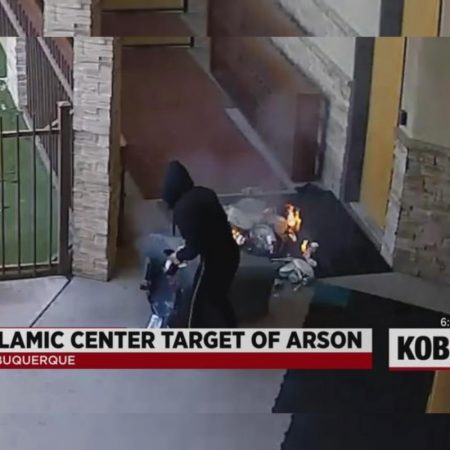Indo-Pak Nuclear Handshake Affirmed By Soldiers’ Diwali Celebrations
By Nilofar Suhrawardy, Muslim Media News Service (MMNS) India Correspondent
NEW DELHI: Ironically, festival time spelt celebrations and exchange of pleasantries between Indian and Pakistani soldiers at the international border, even though diplomatic relations between the countries continue to be strained since last year’s Mumbai-strikes. Marking Diwali, the festival of lights (October 17), at the joint check post at Attari Border, the Indian Border Security Force (BSF) Commandant S.H. Dhillon handed over seven boxes of traditional Indian sweets and a big basket of fruits to the Wing Commander of Pakistan Rangers Mohhammad Akbar Ali Bhatt. Soldiers of both the countries shook hands and interacted with each other exchanging pleasantries. Similarly, the two sides exchanged greetings at Chakan-da-Bagh crossing point along Line of Control (LoC). Representing the Indian side, Colonel J.P. Yadav handed over eight boxes of sweets and dry fruits to Pakistani side led by Colonel Asad. While exchanging greetings, they also prayed for peace between India and Pakistan. Border security officials from the two sides exchanged sweets last month also, celebrating Eid.
While exchange of pleasantries at the border between soldiers of two sides has not hit headlines globally or nationally, it certainly conveys a strong message. Though as their respective national security demands, they are prepared for war, India and Pakistan certainly seem in no mood to reach even a near-war or a war-like stage at least in the near future. In fact, probability of an open conflict between India and Pakistan has been ruled out since the two attained nuclear prowess and subsequently reached a nuclear understanding with each other. This point is being specifically made as it defies the claim made by Pulitzer Prize-winning author Taylor Branch in his new book, The Clinton Tapes: Wrestling History with the President (Simon & Schuster), about India and Pakistan being on the verge of a nuclear conflict in the late nineties.
There is nothing astonishing or even new about Branch’s claim as United States has been apprehensive about nuclear policies pursued by India as well as Pakistan from the very beginning. United States has always been against their proliferation drive and has repeatedly tried securing their signatures to the Non-Proliferation Treaty (NPT). When India initially stepped onto the nuclear path, followed by Pakistan, Washington raised hue and cry over it, emphasizing that it would take the subcontinent only towards MAD, that is Mutually Assured Destruction.
Branch has repeated the old US-stance against the rise of nuclear prowess in subcontinent by drawing attention to there having prevailed the possibility of a Indo-Pak nuclear war in 1999 over the Kargil-conflict. Well, the risk of a nuclear war between India and Pakistan over numerous issues, such as Kashmir, terrorism and others has been a permanent one. It shall remain so probably for decades to come. It is indeed paradoxical that the superpower has failed to credit the two nations, particularly the Indian government for not reaching the war-stage even in 1999, despite all the preparations being in place. India’s nuclear diplomacy prevailed. It defeated the US apprehension that Indian nuclear prowess would spell destruction. Indian nuclear diplomacy strongly signaled the victory of deterrence pact it had entered into with Pakistan against the criticism levied by United States towards their proliferation drive. Signed by then Prime Ministers Rajiv Gandhi and Benazir Bhutto on December 31, 1988, the two countries agreed not to attack each other’s nuclear installations and facilities. Notwithstanding all the hype raised over the stall in the Indo-Pak dialogue process, the two countries have continued to practise this agreement which entered into force on January 27, 1991. They inform each other of nuclear installations and facilities covered by the agreement on first January of every calendar year. Despite the Mumbai-terrorist strikes serving as a diplomatic irritant, they exchanged the lists this year too.
True, the Kargil-issue nearly brought India and Pakistan to the stage of an open conflict. Without doubt, India as Big Brother in the region had (and has) options to display an aggressive approach towards its neighbors by reaching the war-stage when provoked by external elements desirious of chaos and instability in South Asia. The Kargil-issue followed by several terrorist incidents, including the Mumbai-strikes, provoked by extremist elements across the border are all suggestive of designs contemplated to incite the two nuclear powers to the stage of an open conflict. If they did, it would add credence to apprehensions voiced by United States that India and Pakistan are not diplomatically mature enough to pursue the proliferation drive. It is time that Washington revised its opinion about fears it has entertained against India’s nuclear drive from the beginning.
Nuclear diplomacy as laid out and followed by Indian government should be viewed as a perfect example of a nuclear power’s foreign policy towards another country, even though it may entertain long-lasting differences with it on certain crucial issues. Branch’s reference to India and Pakistan having almost reached the stage of nuclear war in late nineties may well be viewed as a reiteration of old stand entertained by United States against proliferation drive in South Asia. Rather than question Indian nuclear diplomacy, which has only been successfully practiced till date, United States needs to reconsider whether its own nuclear diplomacy has been equally successful or not. War games played by the superpower in Iraq and Afghanistan can hardly be signaled as a success of United States’ nuclear diplomacy. War only spells failure of diplomacy. The Indo-Pak nuclear handshake together with their symbolic exchange of greetings on festive occasions at the border itself defeat all the hype entertained by Uncle Sam about their preparing for a MAD nuclear war.
11-44












2009
889 views
views
0
comments